第10章
When this happened, poison was found upon him.The trial came on before the Chatelet.Lachaussee denied his guilt obstinately.The judges thinking they had no sufficient proof, ordered the preparatory question to be applied.Mme.Mangot appealed from a judgment which would probably save the culprit if he had the strength to resist the torture and own to nothing;[Note: There were two kinds of question, one before and one after the sentence was passed.In the first, an accused person would endure frightful torture in the hope of saving his life, and so would often confess nothing.In the second, there was no hope, and therefore it was not worth while to suffer additional pains.]
so, in virtue of this appeal, a judgment, on March 4th, 1673, declared that Jean Amelin Lachaussee was convicted of having poisoned the lieutenant and the councillor; for which he was to be broken alive on the wheel, having been first subjected to the question both ordinary and extraordinary, with a view to the discovery of his accomplices.At the same time Madame de Brinvilliers was condemned in default of appearance to have her head cut off.
Lachaussee suffered the torture of the boot.This was having each leg fastened between two planks and drawn together in an iron ring, after which wedges were driven in between the middle planks; the ordinary question was with four wedges, the extraordinary with eight.
At the third wedge Lachaussee said he was ready to speak; so the question was stopped, and he was carried into the choir of the chapel stretched on a mattress, where, in a weak voice--for he could hardly speak--he begged for half an hour to recover himself.We give a verbatim extract from the report of the question and the execution of the death-sentence:
"Lachaussee, released from the question and laid on the mattress, the official reporter retired.Half an hour later Lachaussee begged that he might return, and said that he was guilty; that Sainte-Croix told him that Madame de Brinvilliers had given him the poison to administer to her brothers; that he had done it in water and soup, had put the reddish water in the lieutenant's glass in Paris, and the clear water in the pie at Villequoy; that Sainte-Croix had promised to keep him always, and to make him a gift of 100 pistolets; that he gave him an account of the effect of the poisons, and that Sainte-Croix had given him some of the waters several times.Sainte-Croix told him that the marquise knew nothing of his other poisonings, but Lachaussee thought she did know, because she had often spoken to him about his poisons; that she wanted to compel him to go away, offering him money if he would go; that she had asked him for the box and its contents; that if Sainte-Croix had been able to put anyone into the service of Madame d'Aubray, the lieutenant's widow, he would possibly have had her poisoned also; for he had a fancy for her daughter."This declaration, which left no room for doubt, led to the judgment that came next, thus described in the Parliamentary register: "Report of the question and execution on the 24th of March 1673, containing the declarations and confessions of Jean Amelin Lachaussee; the court has ordered that the persons mentioned, Belleguise, Martin, Poitevin, Olivier, Veron pere, the wife of Quesdon the wigmaker, be summoned to appear before the court to be interrogated and heard concerning matters arising from the present inquiry, and orders that the decree of arrest against Lapierre and summons against Penautier decreed by the criminal lieutenant shall be carried out.In Parliament, 27th March 1673." In virtue of this judgment, Penautier, Martin, and Belleguise were interrogated on the 2lst, 22nd, and 24th of April.
On the 26th of July, Penautier was discharged; fuller information was desired concerning Belleguise, and the arrest of Martin was ordered.
On the 24th of March, Lachaussee had been broken on the wheel.As to Exili, the beginner of it all, he had disappeared like Mephistopheles after Faust's end, and nothing was heard of him.Towards the end of the year Martin was released for want of sufficient evidence.But the Marquise de Brinvilliers remained at Liege, and although she was shut up in a convent she had by no means abandoned one, at any rate, of the most worldly pleasures.She had soon found consolation for the death of Sainte-Croix, whom, all the same, she had loved so much as to be willing to kill herself for his sake.But she had adopted a new lover, Theria by name.About this man it has been impossible to get any information, except that his name was several times mentioned during the trial.Thus, all the accusations had, one by one, fallen upon her, and it was resolved to seek her out in the retreat where she was supposed to be safe.The mission was difficult and very delicate.Desgrais, one of the cleverest of the officials, offered to undertake it.He was a handsome man, thirty-six years old or thereabouts: nothing in his looks betrayed his connection with the police; he wore any kind of dress with equal ease and grace, and was familiar with every grade in the social scale, disguising himself as a wretched tramp or a noble lord.He was just the right man, so his offer was accepted.
He started accordingly for Liege, escorted by several archers, and, fortified by a letter from the king addressed to the Sixty of that town, wherein Louis xiv demanded the guilty woman to be given up for punishment.After examining the letter, which Desgrais had taken pains to procure, the council authorised the extradition of the marquise.